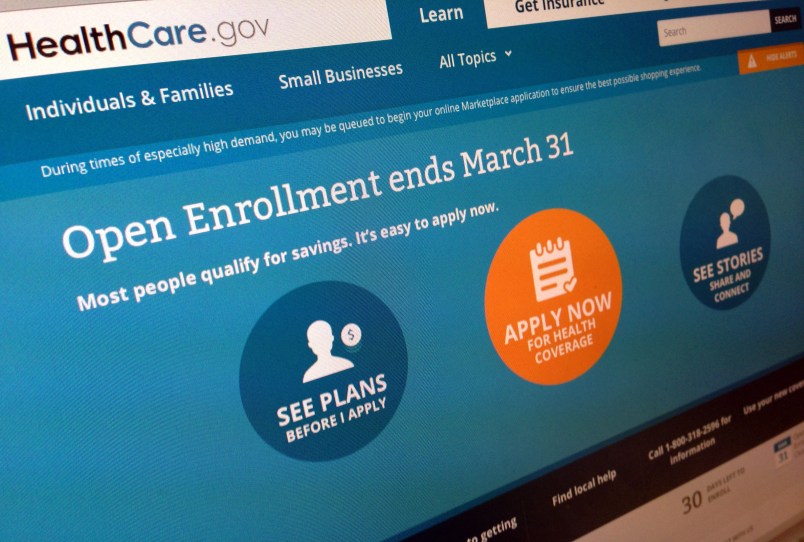Since the implementation of Obamacare picked up in the fall of 2013, Americans are reporting better health and easier access to doctors, a new study found. But minority Americans as well as lower-income Americans reported even greater gains.
“The reduction in the uninsured rate among Latino adults was greater than the reduction among white adults,” the study noted, with Latinos reporting a reduction at 11.9 percent compared to 6.1 percent reduction among non-Latino whites. Likewise, non-Latino blacks saw a greater drop in the uninsured rate than whites, reporting a 10.9 percent reduction. In the areas of access to doctors and medicine, Latinos and blacks also made greater gains than their white counterparts.
Additionally, the study compared the experiences of those in states that had participated in the Affordable Care Acts’s Medicaid expansion prior to March 2015 against those in the 22 states that did not. It found that there was a greater reduction (by a difference of 5.2 percent) of the uninsured rate for those in Medicaid expansion states, as well as greater gains in access to doctors and medicine, than those in non-Medicaid expansion states.
“As states continue to debate whether to expand Medicaid under the ACA, these results add to the growing body of research indicating that such expansions are associated with significant benefits for low-income populations,” the study said.
For the survey, researchers from the Harvard School of Public Health, Harvard Medical School’s Brigham & Women’s Hospital, and the U.S. Department of Health and Human Services looked at phone surveys of more than 500,000 Americans, nearly 50,000 of them in the lower-income bracket. The study used data from phone surveys that were conducted continually from January 2012 through March 2015, which included two Obamacare enrollment periods. The study was published in the July 28 issue of JAMA.
The study cautioned that researchers couldn’t be certain that Obamacare had prompted the reported improvements in healthcare access, and outside factors such as the economic recovery could have played a role. (Researchers did control for economic-related variables like income, individual employment, and state unemployment rates). Researchers expressed more confidence in the Medicaid portion of the study since the non-Medicaid states functioned as a natural control group, but still acknowledged that the sample size in that portion of the analysis was much smaller than the overall study.







RWNJs: See, just like we said, it’s a really bad idea.
Not the GetSickDieQuick outcome the GOTP want.
I can’t help but think we’d face less resistance from Republicans if we planted stories that O-care was saving tax money by secretly denying services to minorities.
Normally I’d call that underhanded but hell, their own trusted “news” sources already lie to them so I don’t even think I’d feel bad about it.
This is exactly what they didn’t want to happen!
Gop/bags heads explode in three, two…
Yes, expanding Medicaid, and in so doing promoting more cost-effective medical treatment – preventative as opposed to expensive emergency room service – increases access to medical care.
Your point?